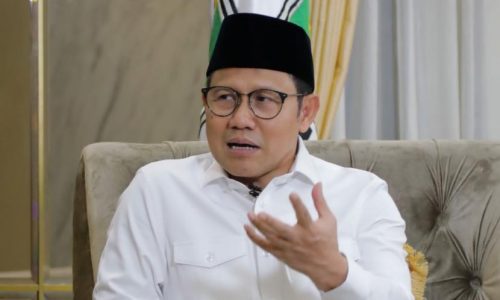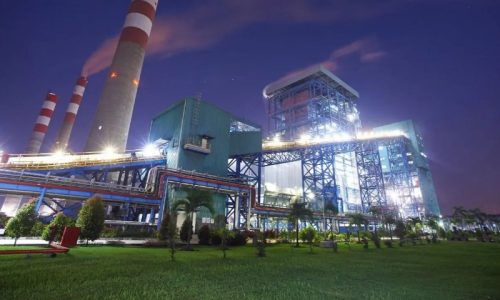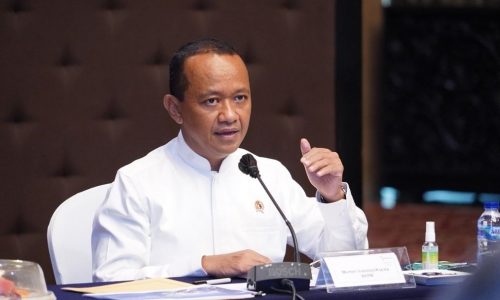Megain Widjaja, CEO of the Indonesia Climate Exchange (ICX), has called on the government to reconsider the implementation of carbon taxes at rates he considers too low. Under the new Tax Regulation Harmonization Law (UU HPP), the government has set a minimum tariff of IDR 30 per kg of CO2 equivalent for carbon taxes.
Megain Widjaja in a bid to bolster Indonesia’s commitment to tackling climate change expresses concern that the proposed tariff is just not robust enough.
He contends that if carbon taxes are set too low, it might hinder the demand for carbon credits within Indonesia. Megain highlighted that exceedingly low carbon taxes could lead business owners to opt for the cheaper tax payment, without adequately considering the carbon footprint of their operations.
“As a representative of the industry, I might find it more appealing to simply pay the lower carbon tax. Consequently, carbon-related projects might remain unsold due to their relatively higher costs,” Megain asserted on August 24, 2023.
Widjaja acknowledged that carbon taxes are indeed a breath of fresh air in the effort to meet carbon emission reduction targets. He acknowledged the necessity of diverse strategies, beyond solely relying on increasing the share of renewable energy sources (EBT) to 23% by 2025, to fulfill the commitments outlined in the 2015 Paris Agreement.
“However, if the carbon tax remains at such low levels, it might not contribute significantly to achieving the 23% EBT target by 2025,” he emphasized.
He underscored the significant discrepancy between Indonesia’s proposed carbon tax rate and Singapore’s rate, which stands at US$ 3.71 per ton of CO2e, or roughly IDR 56.89 per kg of CO2e. Widjaja noted that Indonesia’s carbon emissions considerably surpass those of Singapore.
Delayed implementation of carbon tax
Meanwhile, the timeline for the implementation of the carbon tax remains uncertain, with a delay of over a year from the original plan set for April of the previous year.
Finance Minister Sri Mulyani highlighted the cautious approach the government is taking in introducing this new instrument.
Sri Mulyani emphasized that the introduction of the carbon tax will be gradual and carefully executed. The government aims to achieve positive impacts with this instrument while also considering potential negative consequences.
However, the Finance Minister did not explicitly outline the potential negative impacts that might arise from the carbon tax.
“We strive for Indonesia’s economy to continue thriving in terms of growth and stability, while also undergoing transformation,” stated Sri Mulyani.
Originally slated for an April launch, the plan was pushed back three months and was expected to take effect in early July. At the time, the Ministry of Finance stated that rule harmonization and economic recovery considerations were necessary for the delay.
However, the July implementation plan was also shelved. The government reiterated the need for thorough rule formulation and alignment with carbon market schemes.
Previous delays
Despite the double postponement, the Ministry of Finance maintained its target for immediate implementation and intended to showcase it at the G20 Summit.
Citing Article 13, Section 2 of Law 7/2021 on Tax Regulation Harmonization (HPP), the carbon tax implementation will take into account a carbon tax roadmap and/or carbon market schemes.
This roadmap comprises four aspects: carbon emission reduction strategy, priority sector goals, integration of renewable energy development, and alignment with various policies.
The policy also outlines the phased implementation of the carbon tax. The year 2021 was dedicated to developing carbon trading mechanisms. The years 2022-2024 would witness a limited application of the carbon tax under a cap and tax scheme, initially targeting coal-fired power plants (PLTUs). By 2025, the tax’s scope would extend to other sectors.
In summary, Megain Widjaja’s call for a reconsideration of carbon tax rates underscores the delicate balance between incentivizing businesses to participate in emission reduction efforts and ensuring that these efforts translate into substantial change.
As the government continues its deliberations on carbon taxation, the nation remains committed to charting a greener and more sustainable future.









